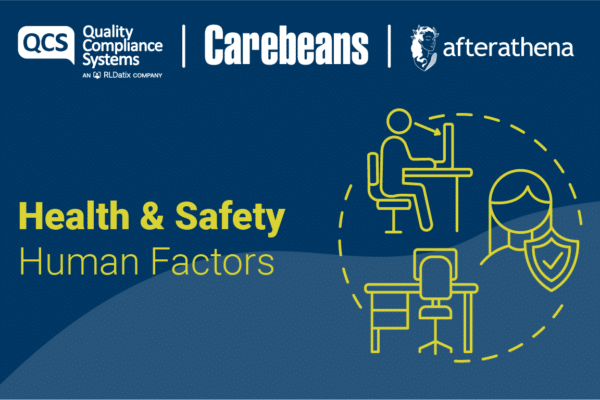Loss of vision is one of the largest health concerns of ageing. In a recent survey undertaken by researchers at John Hopkins University, respondents ranked losing vision as equal to, or worse than, losing hearing, memory, speech, or a limb.
This week the nutrition blog looks at whether supplements can prevent or slow down age-related macular degeneration.
Age-Related What?
One of the major causes of vision loss is age-related macular degeneration or AMD. This is a condition of the macula, the central area of the back of the eye, the retina. Any damage to the macula can affect vision, particularly central vision. The macula degenerates with age, and in some people, this deterioration happens more quickly. In early AMD, the affected person will probably be unaware that they have a problem. In the later stages, there may be considerable distortion within the central visual field leading to a complete loss of central visual function.
Preventing the development of, and slowing down the progression of age-related macular degeneration are important health goals, and nutrition may play a role.
The underlying theory is that antioxidant supplements will protect the retina against oxidative damage, and that this protection will delay the onset of AMD. And so antioxidant vitamin and mineral supplements (e.g. Vitamin C, E, the carotenoids including beta-carotene and the macular pigment carotenoids lutein and zeaxanthin, and zinc), are increasingly being marketed for use in age-related eye disease, but is there any evidence that they are effective?
Two recently published Cochrane reviews have looked at this subject. Cochrane Reviews are systematic reviews internationally recognised as the highest standard in evidence-based health care resources.
Do Antioxidant Vitamin and Mineral Supplements Prevent the Development of AMD?
In this first review, the Cochrane researchers only looked at the effects of supplements in healthy people in the general population who did not yet have AMD. They only found 5 studies to answer this question that compared vitamin supplements (4 studies with vitamin E, 2 with beta-carotene and 1 study with vitamin C and with a multivitamin) with a placebo.
The review showed that, compared with taking a placebo, taking vitamin E or beta-carotene supplements is not likely to prevent AMD. The same probably applies to vitamin C and the multivitamin investigated in the one trial reported to date. There is currently no evidence with respect to other antioxidant supplements.
Does Taking Antioxidant Vitamin and Mineral Supplements Slow Down the Progression of AMD and Prevent Visual Loss?
The second Cochrane review explored whether supplements slow progression in people with AMD. The researchers found 19 relevant studies to answer this question in which antioxidant vitamin or mineral supplementation, alone or in combination, was compared with placebo or no intervention.
What Were the Main Results of This Review?
- Taking antioxidant vitamins plus zinc probably modestly slows down the progression to late AMD and vision loss (moderate-certainty evidence). Most benefit is suggested in people who have a higher chance of progression
- Despite being marketed for people with AMD, taking lutein alone or combined with zeaxanthin showed that they, as well as taking vitamin E alone, may have little or no effect on progression to late AMD and vision loss (low-certainty evidence)
The hypothesis that antioxidant micronutrients may protect against AMD is a reasonable one. Given that there are few other interventions that offer much in the way of disease prevention or cure, multivitamins may be an important consideration. But we do not know enough yet. The research to date suggests that vitamin supplements (at least those studied) do not prevent AMD. There is some evidence that they may slow down progress although this is a modest effect, and we do not know at what stage the protective effect may be important, nor do we know whether there are any genetic differences in the response or any interaction with other risk factors for the condition.
In addition, whilst such supplements are readily available and generally regarded as safe they could potentially have harmful effects. This has been seen, for example, in some long-term vitamin supplementation trials in smokers. The studies included in the review do not provide conclusive evidence on safety as they were generally too small and adverse effects were reported inconsistently.
A healthy diet with a variety of fresh fruit and vegetables will have many benefits. However, it may be difficult to consume, as part of a normal diet, the levels of antioxidants and zinc described in the trials included in the reviews.







